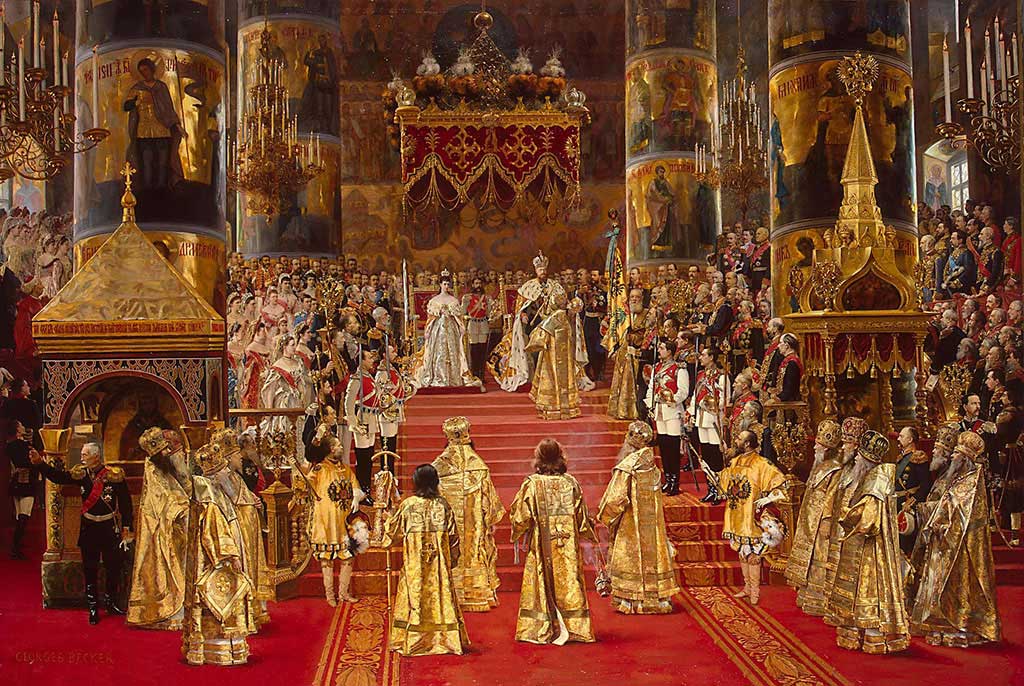1721-1917
Tsarist Russia became an empire during Peter the Great. Russia’s victory over Napoleon raised it to the level of the world’s other super powers. But increasing social backwardness prepared the stage for revolution.

“Coronation of Emperor Alexander III and Empress Maria Fyodorovna” by Georges Becker (1888)
Background
By the 18th century the Age of Absolute Monarchy reached its peak. Compared to Western Europe, Russia was still in the Middle Ages. There had been no renaissance, no reformation or scientific revolution.
State and society
Peter the Great radically reformed almost all walks of social and economic life. Catherine the Great granted some additional privileges to nobility and improved the local government system. But the biggest relic was serfdom, which was only formally abolished in 1861.
The next landmark was 1905, when people were finally granted basic civil liberties. By that time it was already a hundred years too late.
Foreign relations
The Swedish supremacy of the Baltic Sea was broken, Crimea taken from the Ottoman Turks and Poland divided. Victory over Napoleon gave Russia a reputation as the world’s supreme military power. That reputation, hurt by the Crimean War, disintegrated further in the years to follow. Entering World War I was a mistake that the empire did not survive.
Culture
By the 20th century the 22,2 million km² empire was the world’s biggest colonial state. It was by no means a homogeneous state. The colonial policies varied from Russification and military dictatorship to large-scale autonomy.
Imperial Russia
1721-1917
Tsarist Russia became an empire during Peter the Great. Russia’s victory over Napoleon raised it to the level of the world’s other super powers. But increasing social backwardness prepared the stage for revolution.
“Coronation of Emperor Alexander III and Empress Maria Fyodorovna” by Georges Becker (1888)
Background
By the 18th century the Age of Absolute Monarchy reached its peak. Compared to Western Europe, Russia was still in the Middle Ages. There had been no renaissance, no reformation or scientific revolution.
State and society
Peter the Great radically reformed almost all walks of social and economic life. Catherine the Great granted some additional privileges to nobility and improved the local government system. But the biggest relic was serfdom, which was only formally abolished in 1861.
The next landmark was 1905, when people were finally granted basic civil liberties. By that time it was already a hundred years too late.
Foreign relations
The Swedish supremacy of the Baltic Sea was broken, Crimea taken from the Ottoman Turks and Poland divided. Victory over Napoleon gave Russia a reputation as the world’s supreme military power. That reputation, hurt by the Crimean War, disintegrated further in the years to follow. Entering World War I was a mistake that the empire did not survive.
Culture
By the 20th century the 22,2 million km² empire was the world’s biggest colonial state. It was by no means a homogeneous state. The colonial policies varied from Russification and military dictatorship to large-scale autonomy.
Palace Revolutions